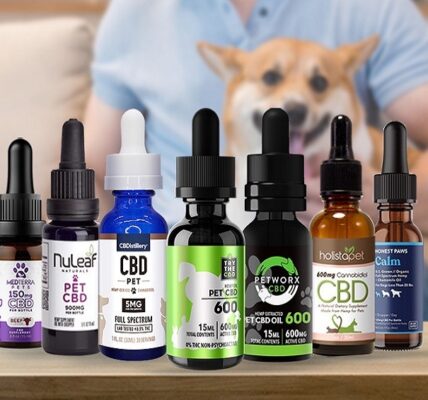Cannabidiol, or CBD, is one of the natural compounds found in the Cannabis sativa plant, otherwise known as marijuana or hemp. It does not have psychoactive properties; therefore, it does not create the “high” associated with the use of marijuana that contains tetrahydrocannabinol (THC). Hemp and Marijuana, two widely different plants, originate from this species. The plants are classified based on the THC (intoxicating and psychoactive compound) concentration present in them.
Hemp is heavily regulated by governments worldwide and has a negligible amount of THC (>0.3%), meaning one cannot get ‘high’.
Though humans have been using Cannabinoids in some form or another for centuries, we have gained a proper understanding of how they interact with our bodies only recently.
How does CBD function in the body?
Studies show that the use of Cannabidiol oil India may help reduce pain by influencing endocannabinoid receptor activity, reducing inflammation, and communicating with neurotransmitters related to pain. CBD interacts with our body through the Endocannabinoid system (ECS). The ECS is the largest and most complex system in the human body, with receptors spanning from head to toe. It influences a wide range of functions, as it is responsible for maintaining Homeostasis (a state of balance) in the body.
Research About CBD Interaction in the Human Body
Research has shown that when CBD bonds with the ECS receptors, it improves their capabilities, hence improving the overall functioning of the system. It is this interaction between CBD and the endocannabinoid system that has led to dramatic advancements in holistic health. Millions of people testify to these health benefits, prompting rapid growth in scientific studies, health innovations and the CBD oil industry.
The ECS has three components: receptors, enzymes, and endocannabinoids. Receptors are found throughout the body and are the elements which endocannabinoids connect with.
They send and receive messages transmitted by cannabinoids. The two main types of receptors are CB1 and CB2. CB1 receptors are found in the brain and spinal cord, while CB2 receptors are found in the immune system and the rest of the body.
Endocannabinoid system
CBD interacts with the endocannabinoid system in the body. The endocannabinoid system has cannabinoid receptors located throughout the central and peripheral nervous systems. It helps regulate various bodily functions, such as pain perception, mood, sleep, and immune system response.
Serotonin receptors
CBD also acts on the brain’s serotonin receptors. Serotonin is a neurotransmitter that helps regulate mood. The use of CBD increases serotonin levels in the brain. For this reason, CBD may be a viable treatment option for anxiety or depression. The effects of CBD on the brain may also help in the treatment of neurological disorders, such as epilepsy, multiple sclerosis, Parkinson’s disease, and Alzheimer’s disease.
Considerations
Although the use of CBD is generally safe, it can cause side effects in some cases. It can lead to a decrease in appetite, which can cause changes in weight. It can also cause diarrhea or fatigue. It interacts with several medications, so individuals should speak with a medical professional before trying CBD. Each receptor communicates with specific parts of the body, ensuring specialized support and recovery. Enzymes ensure that endocannabinoids recover and re-coup the body as quickly as possible.
How much CBD does your Body Need?
Cannabidiol oil India has a very wide dosage range, depending on each individual’s level of health and severity of concern. Dosage can be challenging because of the biphasic dose-response effects- as the dosage increases it creates a stronger response up to a certain point, whereas an increase in dosage results in a decrease in effects.
How your body processes CBD depends on how it is used
The three most common ways to consume CBD are through ingestion, inhaling and topical application. Most people choose to take oral supplements (like CBD oil drops). Since the ECS can pinpoint which area of the body needs recovery, topical usage on a specific area(creams, sprays etc.) does not lead to better treatment of that area, it has the same effects as when CBD is orally consumed. The difference lies in the rate of its processing. When ingested, CBD goes through the entire digestive system, before it enters into the bloodstream.
When used topically, buy cbd oil products don’t enter the bloodstream but directly interact with ECS receptors near the area where it was applied. Since skin is not very permeable, this isn’t the most efficient way to use CBD.









